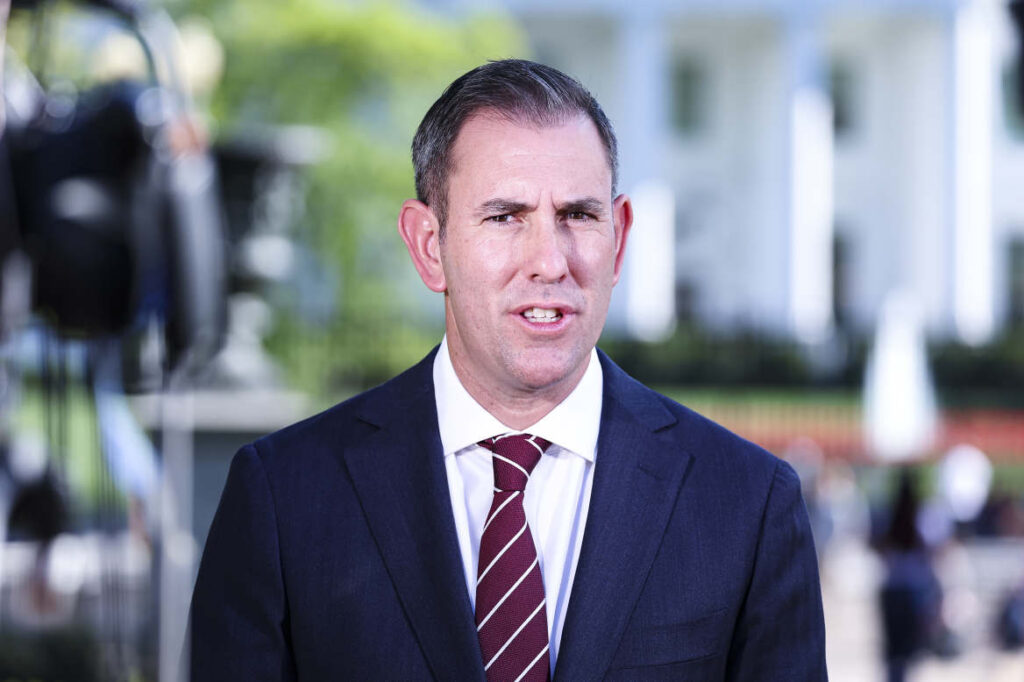Treasurer Jim Chalmers will have to find billions of extra spending in the federal budget to bring women into the workforce, cover the spiralling cost of aged care services, and respond to a government-commissioned report that calls for $34 billion in extra welfare assistance.
The official women’s economic equality taskforce and an independent economic inclusion advisory committee have both urged the government to increase Commonwealth rent assistance, abolish the childcare subsidy activity test and scrap the ParentsNext program.
They independently found that rent assistance – currently capped at $157.20 a fortnight – was not enough to keep up with rapidly rising rents for the 1.3 million households who use it, nor guarantee women’s housing security.
The economic inclusion committee, which the Albanese government established last year to provide budget advice to address disadvantage, also said the JobSeeker rate was “seriously inadequate” for more than one million people and should rise to 90 per cent of the aged care pension.
“People on these payments face the highest levels of financial stress in Australia. Committee members heard from people who live on income support having to choose between paying for their medicine or electricity bills,” they said.
Chalmers, just returned from the weekend’s International Monetary Fund and World Bank round of meetings in the United States, is already facing several economic pressures on the budget.
Government gross debt last week hit a record $911.8 billion, while in October he forecast a budget deficit for the coming financial year of $44 billion. The deficit was then forecast to increase to $51.3 billion in 2024-25.
High commodity prices and strong jobs growth have improved tax collections, but the economy is expected to slow sharply through the next 12 to 18 months. Deloitte Access Economics on Tuesday said the country faced a “consumer recession” as soaring interest rates and inflation bite into household incomes.
Increasing JobSeeker to the committee’s recommended rate would bring the standard payment up from $693.10 to $874.35 – representing a fortnightly jump of about $180 – and cost the government $24 billion.
The total cost of the economic inclusion committee’s report would top $34 billion over the forward estimates. The committee, chaired by former MP Jenny Macklin, also includes union boss Sally McManus, prominent economists Jeff Borland and Angela Jackson and Business Council of Australia chief executive Jennifer Westacott.
The women’s taskforce, headed by business leader Sam Mostyn and including ACTU head Michele O’Neil as well as Westacott, was also commissioned last year to provide advice on ways to improve the economic outcome for the nation’s women.
It found the economic contribution of women was undervalued and less visible compared to men, identifying six “urgent and targeted actions” that would demonstrate the government’s commitment to enhancing women’s financial prospects.
The other immediate recommendations include reinstating the single parenting payment for women with children over the age of eight, paying superannuation on paid parental leave and increasing pay for early childhood and aged care workers.
The taskforce said women wanted action from the government. “Australian women want to believe the government’s commitment to gender equality is real, but until they see evidence of material change that centres their needs and stops the compounding disadvantage that accrues to them, they will retain a healthy scepticism,” it said.
On top of spending demands for social security and women’s inclusion, the government is due to soon release its strategic defence security review that will outline how to cover part of the cost of the $368 billion AUKUS nuclear submarine program.
Another looming problem for Chalmers is aged care spending, which will balloon to $35.8 billion in 2025-26 – a 21 per cent increase over the next three years that makes it the government’s fifth-largest area of expenditure next to debt, the NDIS, health care and defence.
In a response to the economic inclusion report, Chalmers said the government “can’t fund every good idea” but there would be budget measures on May 9 to address disadvantage such as energy bill price relief.
Finance Minister Katy Gallagher, who received the women’s taskforce report, said she welcomed the advice. “We are considering the taskforce’s recommendations in the context of the 2023-24 budget, including what we can responsibly deliver in a tight fiscal environment.”
Source : WA Today


